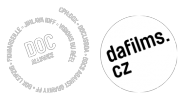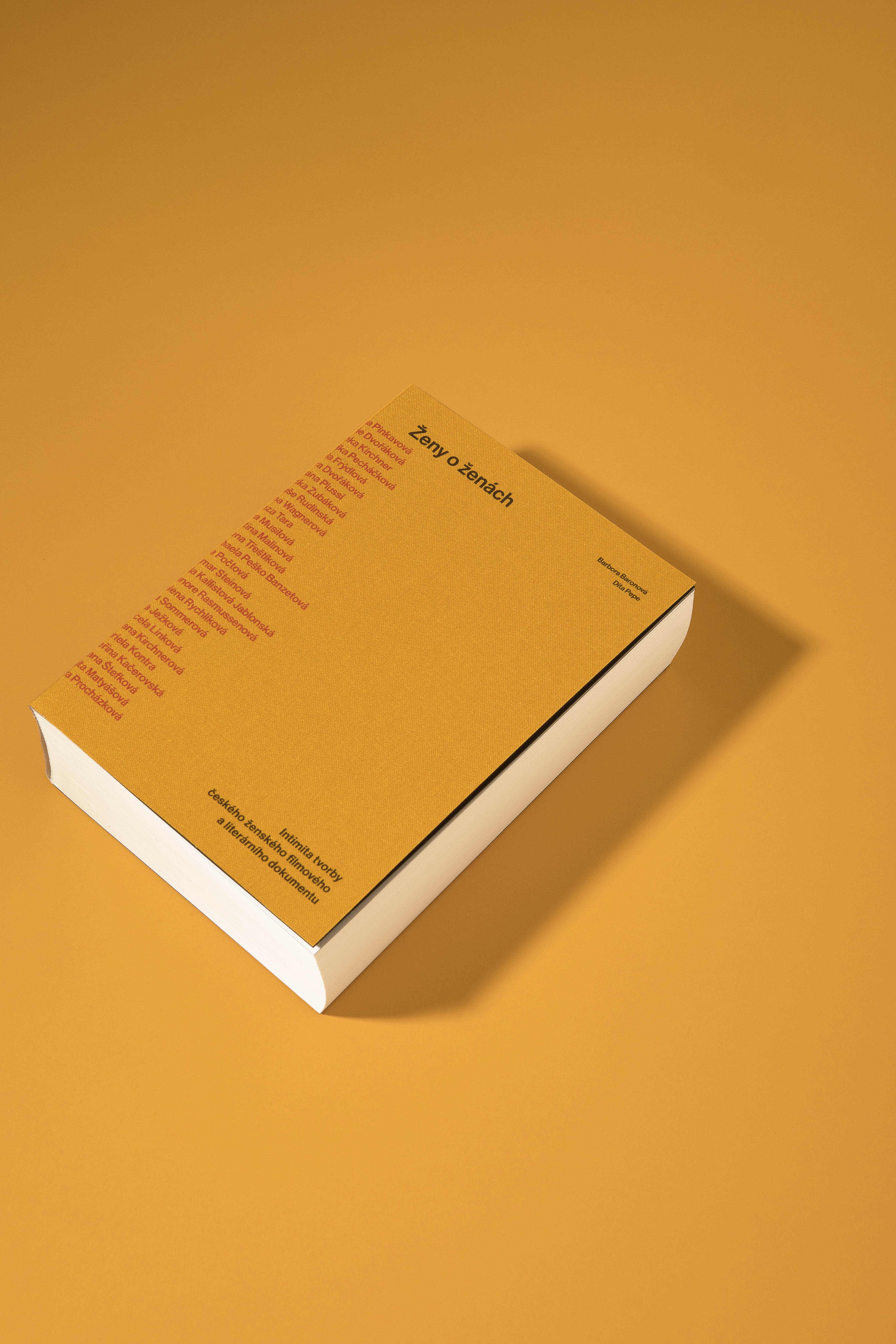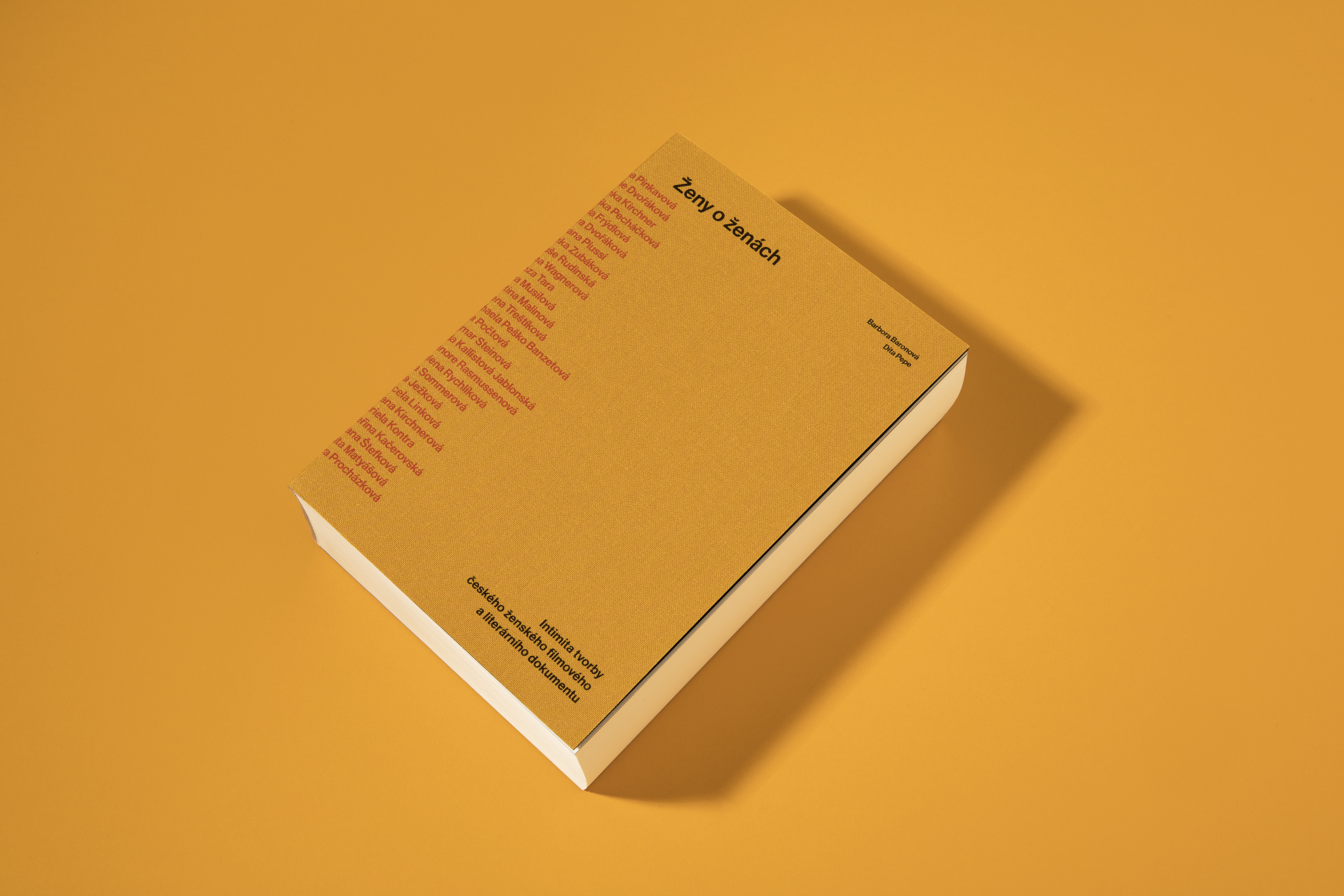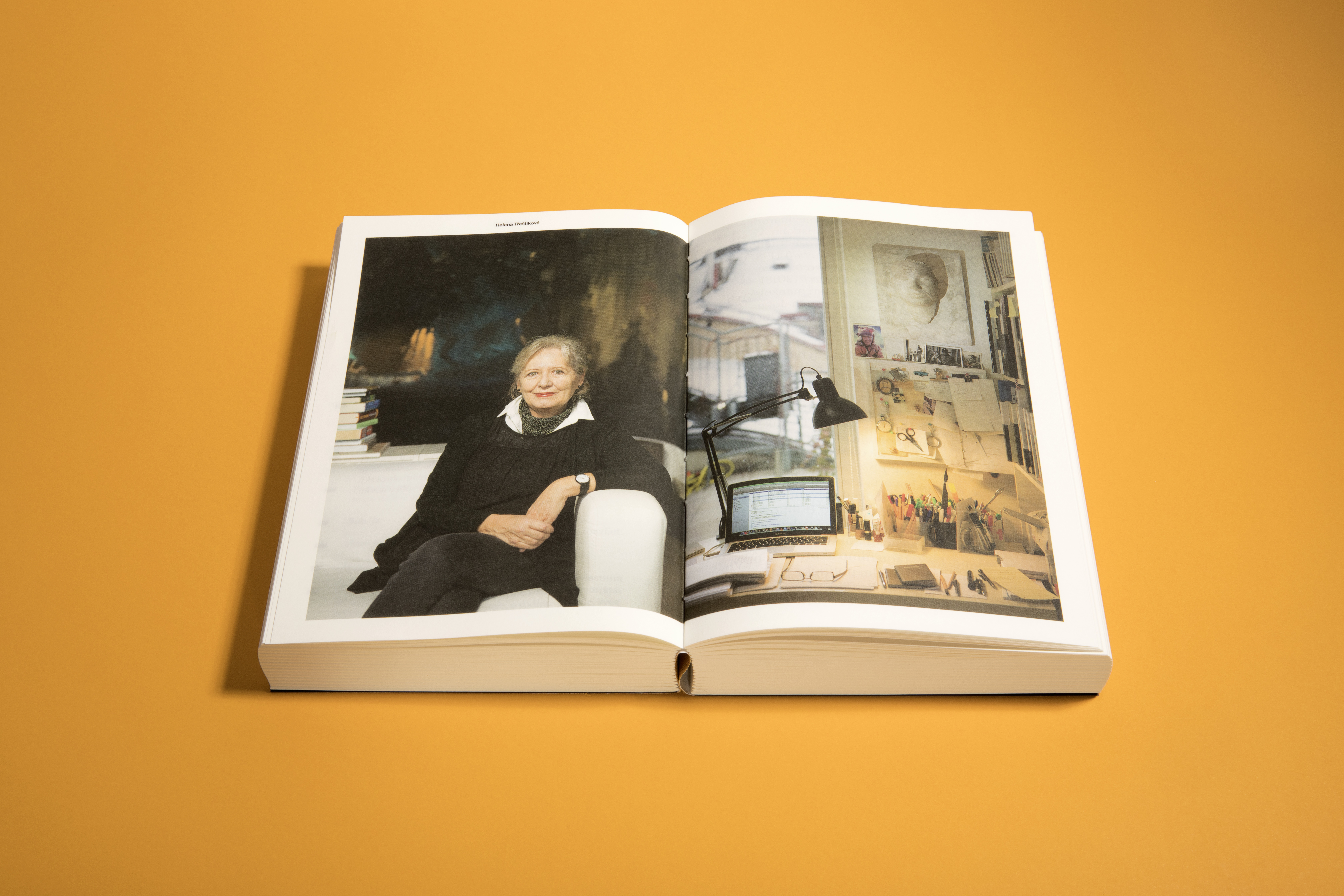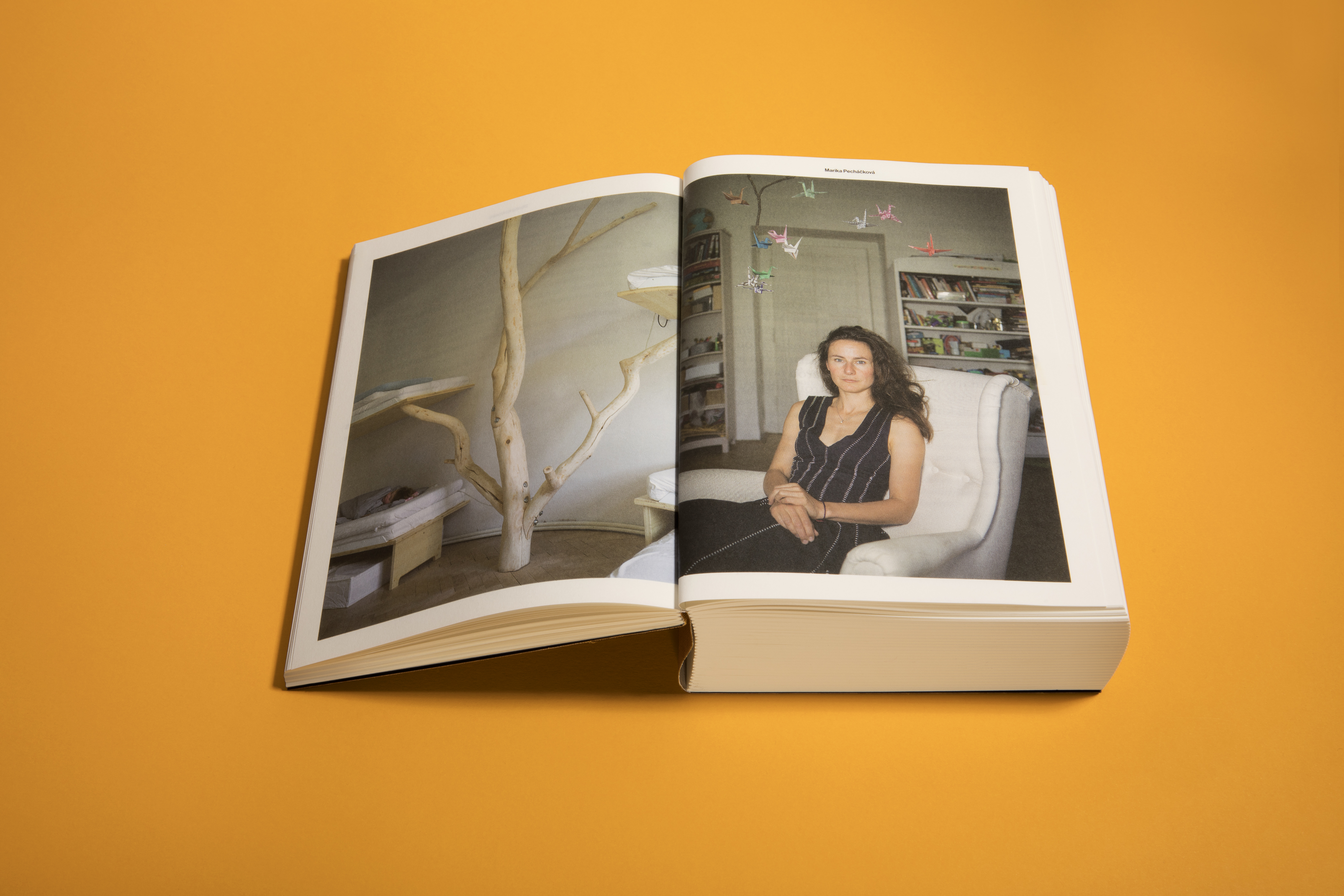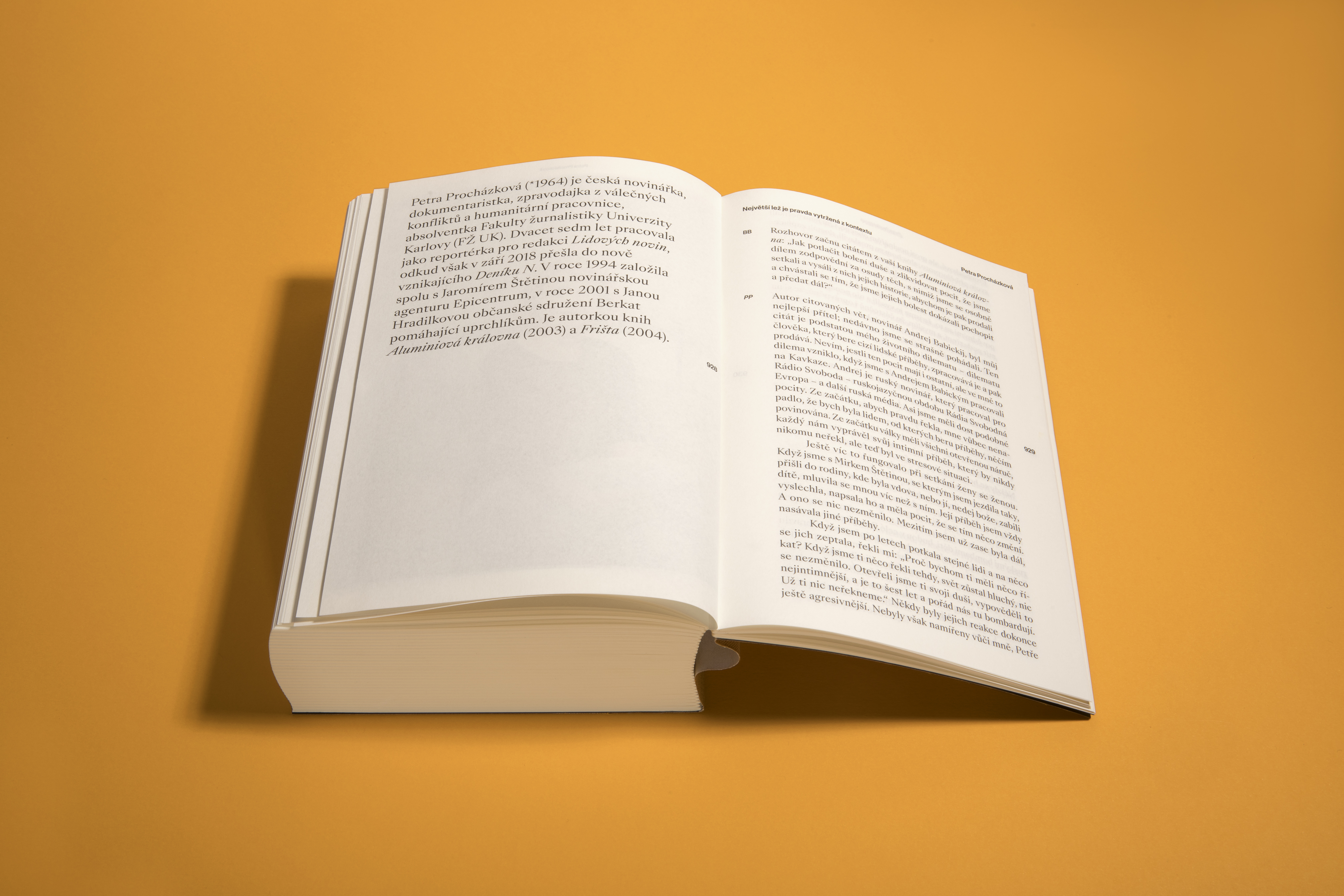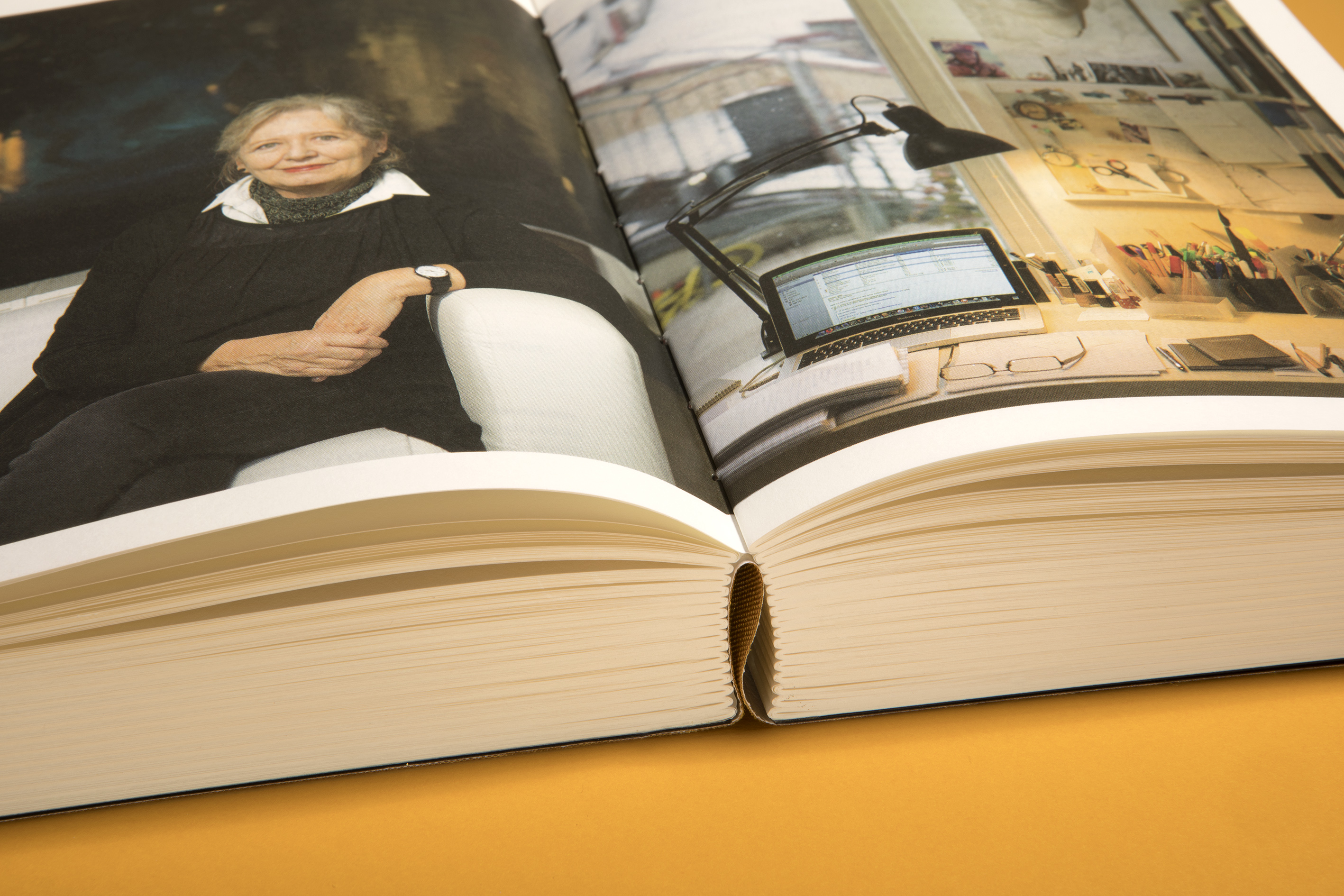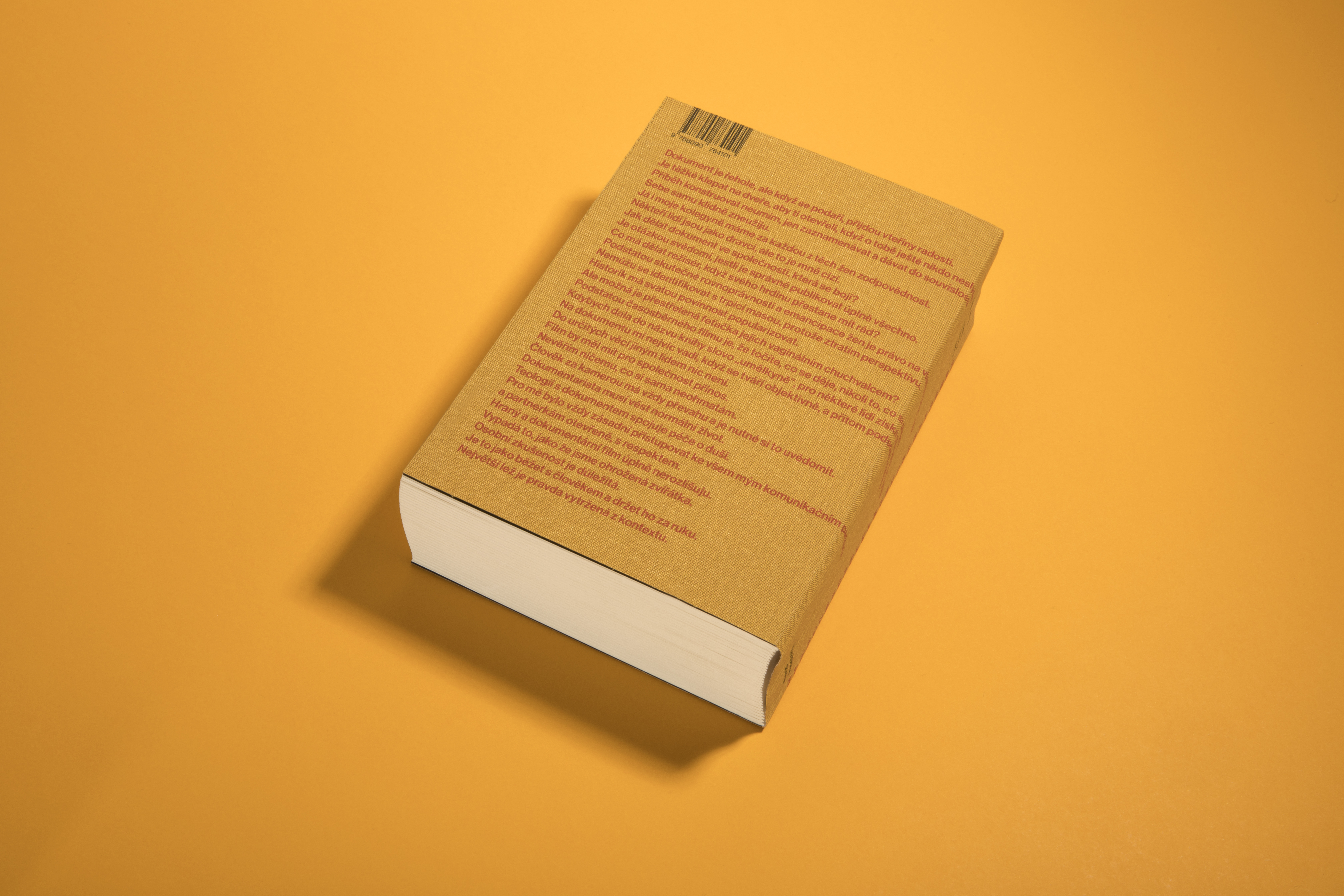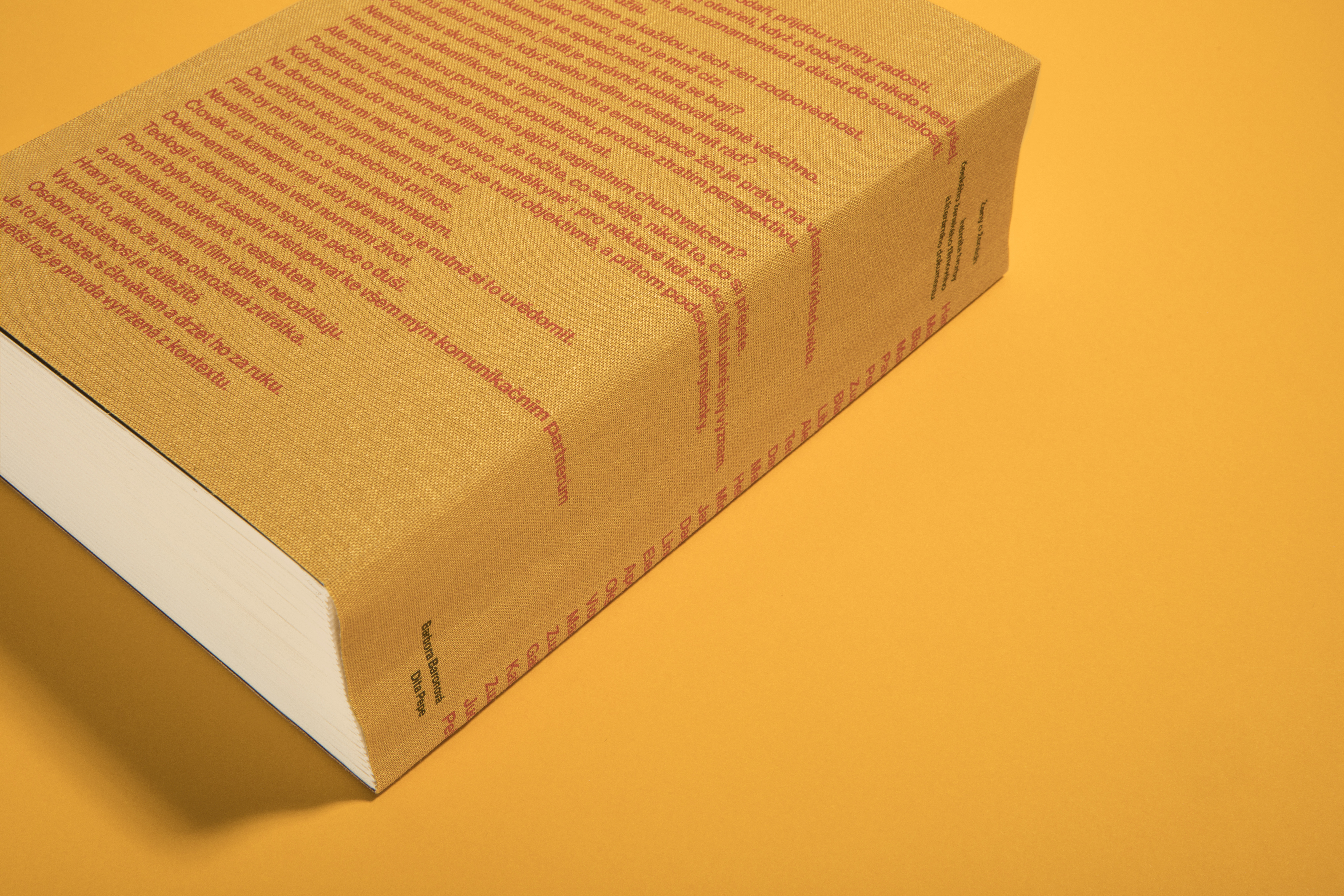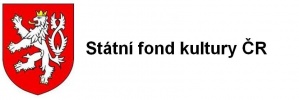 Rector´s Award 2020, Tomas Bata University in Zlín
Rector´s Award 2020, Tomas Bata University in Zlín
the best thesis of 2019 at FMK UTB
 The Most Beautiful Czech Books of 2019
The Most Beautiful Czech Books of 2019
shortlisted
Czech only with English Summary
The publication Women on Women: Disclosure of the Creative Practice of the Czech Women Film and Literary Documentary deals with documentary content created by women in the Czech film and literary environment. Using interviews, it examines specific phases and variables of the creative processes of women documentarians in different situations and with different professional and methodological approaches, opinions, and values. The interviews included in the publication served as the primary information source analysed by Barbora Baronová in her doctoral dissertation of the same title, defended in December 2019 at the Faculty of Multimedia Communication, Tomáš Baťa University in Zlín (TBU). The full version of the dissertation will be available at the Library of TBU.
The book includes twenty-eight interviews with twenty-nine film and literary documentarians from the Czech Republic. The respondents present their subjective views of the context of their work, their personalities, their intentions and motivations to create, and their selection of topics or characters. The interviews address the relationships between the documentarians and the documented persons, ethics, filmmaking processes, and important aspects of the documentary practice, such as censorship, engagement, and therapy, as well as funding and the role of institutions. They focus on women in the context of feminist issues, gender, collaboration, motherhood, and employment. The interviews cover mainly the period from the late 1960s to 2019.
The interviews in Women on Women take into account the category of gender and they were conducted during a time when only a symbolic number of professional film and literary publications on documentary work were published in the Czech Republic. None of these publications has systematically attempted to give an opportunity to women documentarians to allow them to talk about their own approaches to work.
The form of the research interviews was affected by the fact that I am a woman documentarian myself and I know the issues I deal with at work personally and intimately. The work was also influenced by my research practicum stay at the University of New South Wales in Sydney, Australia, where I redefined the concept of my research and methodology. The interviews in this book can be aptly characterized by the term “subjectivity”, for example, in terms of quality, the character of knowledge, and access to research. The dialogical, non-hierarchical interviews also offer the thirtieth, documenting and documentary voice for the research, my own.
In terms of methodology, Women on Women is based on feminist research methods. During the interviews, I used methods of feminist in-depth interviewing, feminist oral history, feminist action research, and original feminist methods as described by Shulamit Reinharz (1992) and Sharlene Nagy Hesse-Biber (2012, 2014). The research interviews were also influenced by the concept of artistic research as understood by Teemu Mäki (2017).
Women documentarians included in this publication meet two conditions – first, they create documentary content, and second, each of them has created at least one film or a book on women or an issue related to women. The book contains interviews with television filmmaker Hana Pinkavová, filmmaker Marie Dvořáková who lives and works mainly in the United States, diary artist Blanka Kirchner, documentary filmmaker Marika Pecháčková, oral historian Pavla Frýdlová, writer Petra Dvořáková, Slovak filmmaker Zuzana Piussi, historian Blanka Zubáková, documentary filmmaker and photographer Libuše Rudinská, writer Alena Wagnerová, holistic filmmaker, artist and personal development lecturer Tereza Tara, professor of history Dana Musilová, experimental documentary filmmaker Martina Malinová, time-lapse documentary filmmaker Helena Třeštíková, art theorist Michaela Peško Banzetová, documentary filmmaker Jana Počtová, memoir author Dagmar Steinová, filmmaker Linda Kallistová Jablonská, ethnographer Eleanore Rasmussenová, activist and documentary filmmaker Apolena Rychlíková, feature-length documentary filmmaker Olga Sommerová, theologian and filmmaker Viola Ježková, sociologist Marcela Linková, director of feature and documentary films Zuzana Kirchnerová, photographer Gabriela Kontra and animator Kateřina Kačerovská, critic and curator Zuzana Štefková, journalist and writer Judita Matyášová, and journalist and humanitarian worker Petra Procházková.
Women on Women also includes the website www.zenyozenach.cz, connecting the research work with the documentary content the documentarians talk about.
Due to the occasionally personal nature of the interviews, I have decided to store the records and transcriptions only in my personal archive. Decisions regarding the processing of the audio recordings, in the case of third-party interest, are the object of the written agreement I have signed with the respondents. The interviews in this book are published in full, as authorized by the respondents. The spoken language was adapted to a standard form expected from written expression. All interviews are supplied with precise references to the works the authors talk about to make it clear what they mean.
- Text: Barbora Baronová
- Photo: Dita Pepe
- Book design: Adéla Svobodová
- Translation: Sylva Ficová
- Editing and proofreading: Kateřina Kadlecová, Eva Vlčková, Veronika Benešová Hudečková
- Transcription: Barbora Baronová, Marie Hvozdecká
- Photo assistance: Barbora Baronová, Petr Hrubeš, Lukáš Hvozdecký, Ida Pepe
- Photo postproduction: Radek Typovský
- Co-publishing: Tomas Bata Univerzity in Zlín
- Print:

